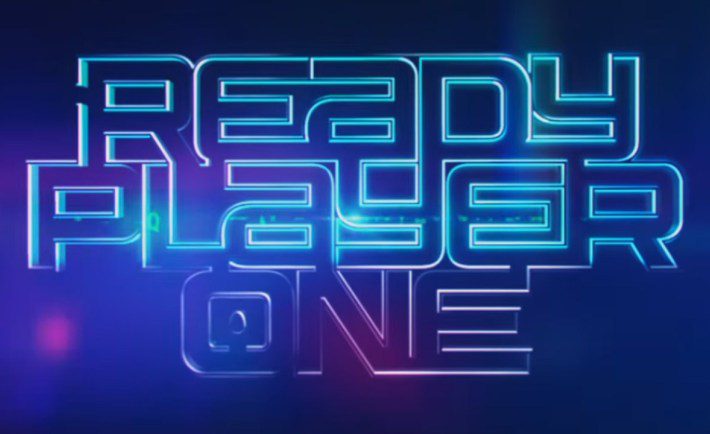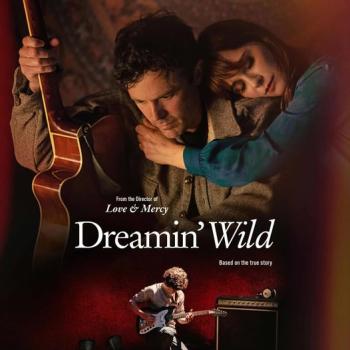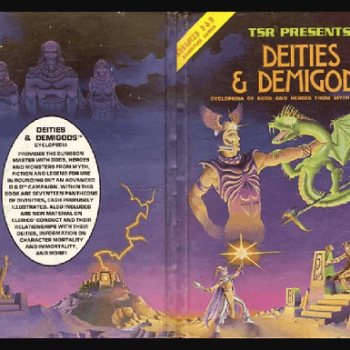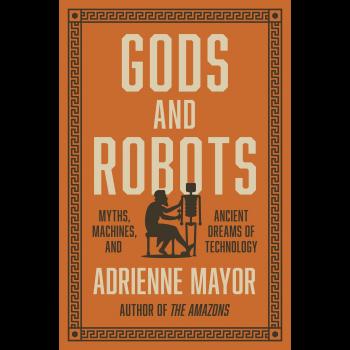I watched Ready Player One yesterday and really enjoyed it. The movie not only connected with my childhood (I remember finding the Easter egg in the Atari game Adventure, which wasn’t as exciting to me as a child as it seems looking back and appreciating the significance of the game creator’s name being hidden in there) but makes powerful points about the dangers and positive potential of technology and games for our time as well as the future.
 I won’t discuss the details of the plot, so that I don’t need to offer a spoiler warning. The movie is a delight for people who grew up in the 1980s playing Atari, watching movies, listening to music, and consuming other popular culture from that era. There is no need to dig into the plot’s details in a way that reveals key elements and might put you off reading further. I haven’t read the book, and so I can avoid commenting on differences between one of the big reveals as it occurs in each.
I won’t discuss the details of the plot, so that I don’t need to offer a spoiler warning. The movie is a delight for people who grew up in the 1980s playing Atari, watching movies, listening to music, and consuming other popular culture from that era. There is no need to dig into the plot’s details in a way that reveals key elements and might put you off reading further. I haven’t read the book, and so I can avoid commenting on differences between one of the big reveals as it occurs in each.
The movie is set in a not at all unrealistic future in which there has been an increase in poverty, but also such widely available virtual reality gaming technology that most people find themselves able to cope with real-world poverty and hardship by immersing themselves in the virtual gaming realm known as Oasis, which has lots of smaller games, activities, and aspects, but all of which are linked in a single shared “world.”
The movie definitely depicts both the shortcomings and the accomplishments of technologically-enhanced interconnectedness. The key figure is the late James Halliday, who invented this gaming platform and embedded in it some games and quests that could eventually lead a successful person to become the owner of Halliday’s shares in the company. Needless to say, there are powerful corporate entities that would love to take possession of that prize.
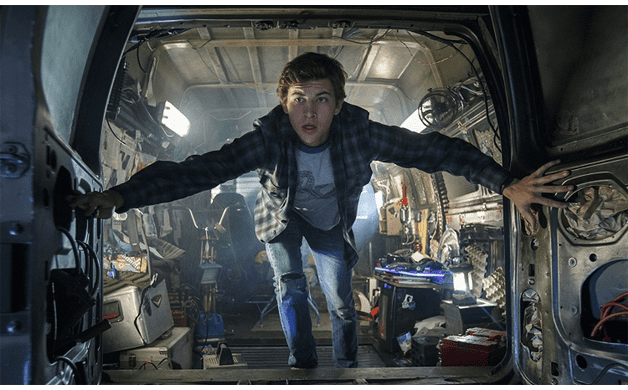 As an academic who studies popular culture, I both liked and had qualms about the place of “Halliday scholars” in the movie. For the most part, the quest was for an accumulation of knowledge of facts, with the hope that this accumulation of trivia could unlock secrets within the game. This is rather more like the way conservative Christians attempt to redefine “scholarship” so as to mean amassing superficial familiarity with texts and ideas in the hope that they will lead to doctrinal insight, rather than critical analysis and the attempt to understand events on a deeper level. Yet I appreciated that they key (which led one to obtain a key) was not mere trivia, but making connections, and ultimately coming to understand Halliday better. Understanding and analysis rather than the ability to regurgitate trivia is the aim of that which genuinely deserves to be called scholarship. On the other hand, there may be some similarity between the quest to discover new information about otherwise well-known figures, events, and stories, and the quest for Easter eggs.
As an academic who studies popular culture, I both liked and had qualms about the place of “Halliday scholars” in the movie. For the most part, the quest was for an accumulation of knowledge of facts, with the hope that this accumulation of trivia could unlock secrets within the game. This is rather more like the way conservative Christians attempt to redefine “scholarship” so as to mean amassing superficial familiarity with texts and ideas in the hope that they will lead to doctrinal insight, rather than critical analysis and the attempt to understand events on a deeper level. Yet I appreciated that they key (which led one to obtain a key) was not mere trivia, but making connections, and ultimately coming to understand Halliday better. Understanding and analysis rather than the ability to regurgitate trivia is the aim of that which genuinely deserves to be called scholarship. On the other hand, there may be some similarity between the quest to discover new information about otherwise well-known figures, events, and stories, and the quest for Easter eggs.
The movie addresses – to a limited extent – the corporatization of online platforms and gaming, recognizing the insidious nature of the corporation and the ways that pursuit of profit and advertising can ruin something that is otherwise positive. What the movie does not really address is what it means if this technology is run by an individual or group who is focused on maintaining its openness and benevolence. Does that just mean lower profits, or does that create something that is in fact financially unsustainable? If the former, then if Facebook continues to treat us as dispensable products, we should be able to replace it with something else. If the latter, then we may have no choice but to either forego the technological interconnectedness of Facebook and other social media like it, or sell our souls (or at least, all pertinent information about our souls) to them in exchange for the substantial benefits that they provide. And let’s not kid ourselves – as Ready Player One reminds us, those benefits are indeed significant.
Online interaction has great potential for us to hide our true selves, to craft an image that doesn’t correspond to reality, and to lose ourselves in way that sustain real-world injustice, serving as the opiate of the masses (and thus connecting directly with Karl Marx’s famous critique of religion). But I hope that everyone reading this has had the experience of discovering how online connection can keep us in touch with family and friends, spawn new friendships, and foster deep and meaningful discussion rather than merely superficial conflict. The internet can foster the latter, too, to be sure, but depth depends on the participants, whether in the real world or a virtual one. The movie seemed to me to strike that balance, recognizing both the harm and the good that this technology offers, and thus resisting facile attempts to either deify or demonize it. And ultimately it showed that a healthy interconnection between virtual and real-life interaction may have more to offer than either can on its own.
What did you think of Ready Player One?
